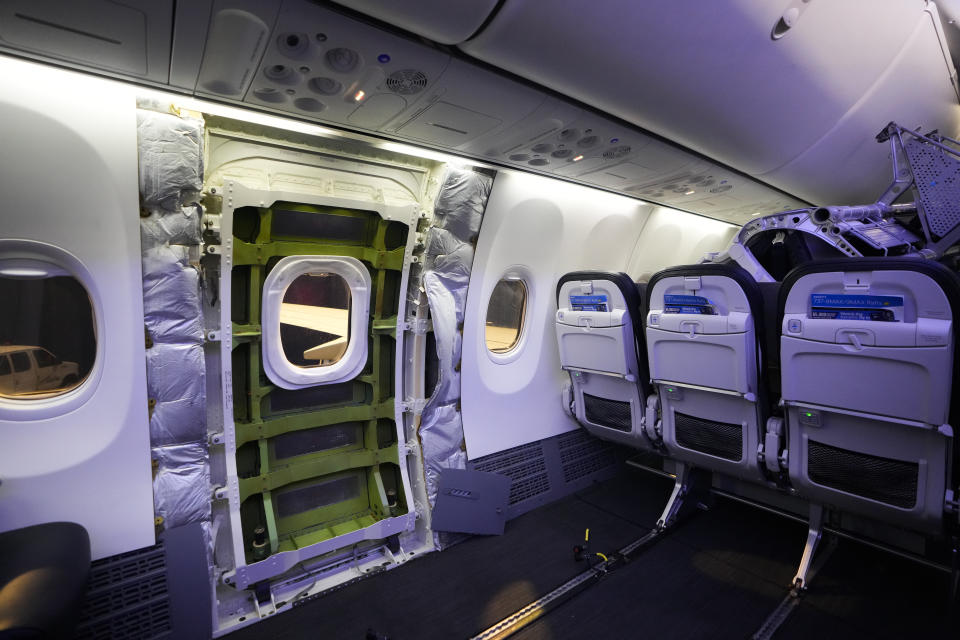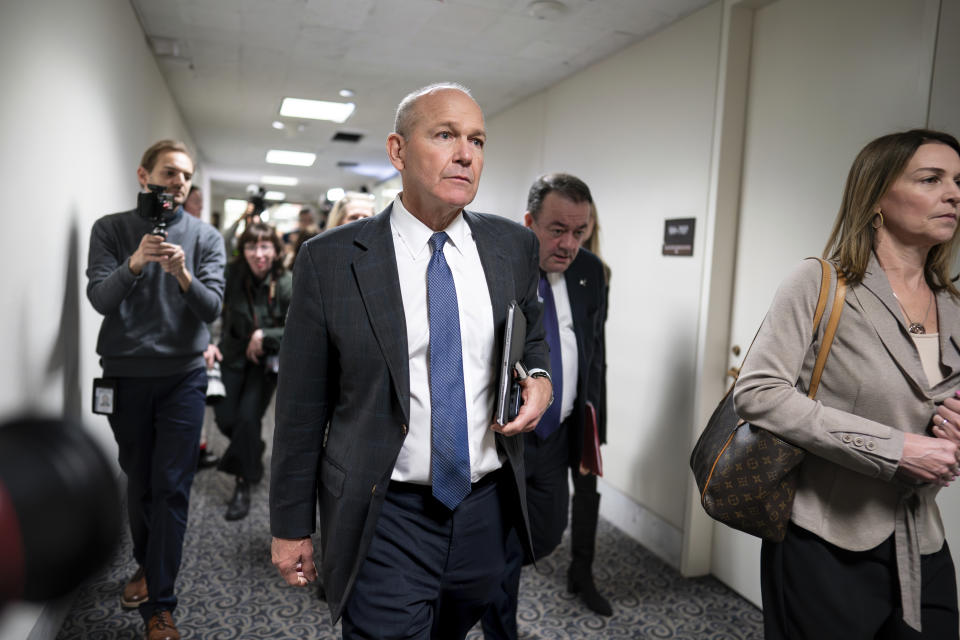Airline executives this week grew increasingly vocal about their frustration with Boeing’s (BA) recent challenges surrounding its 737 Max 9 jets and continued their calls for accountability.
An incident in which a door plug flew off during an Alaska Airlines flight earlier this month has unleashed new scrutiny over the industrial giant’s practices and operations and prompted a mandatory grounding of 171 aircraft.
United Airlines (UAL) and Alaska Air (ALK) are the only two US carriers directly impacted by the grounding. But even American Airlines CEO Robert Isom was critical when asked about Boeing’s leadership.
“We’re a huge Boeing customer,” Isom told analysts on Thursday. “We’re going to hold them accountable. Boeing needs to get their act together. The issues that they’ve been dealing with over the recent period of time, but also going back a number of years now, is unacceptable.”
‘We also hold them accountable’
Alaska Air temporarily stopped using its 737 Max 9 fleet following the mid-air incident on Jan. 5.
“As a longtime valued partner, we remain fully committed to our relationship with Boeing, but we also hold them accountable,” Ben Minicucci, CEO of Alaska Air, said during the company’s earnings call on Thursday.
When asked by analysts to elaborate, Minicucci said, “The accountability is essentially on raising the quality standards at the factory as well as making us whole, but that will be secondary. Right now, we’re focused on safety and quality and getting our fleet back to a full schedule.”
Alaska expects to take a financial hit of $150 million stemming from the fleet grounding. The carrier’s flight cancellations have totaled anywhere from 110 to 150 flights per day.


Executives also estimate Boeing’s problems will likely mean delayed plane deliveries in 2024 and 2025.
“Going forward, we were meant to take 23 aircraft this year,” Alaska Air CFO Shane Tackett told analysts on Thursday. “Our suspicion is many of those will get delayed, but we don’t know for how long.”
United Airlines expressed a similar concern. The carrier anticipated 31 of its deliveries this year would be Boeing Max 9 planes.
“It is unrealistic at this time to believe all of those aircraft will deliver as currently planned,” United CFO Mike Leskinen said earlier this week.
The airline also voiced concerns about Boeing’s ability to deliver Max 10 aircraft, which have yet to be certified.
“The reality is that with the Max grounding, this is the kind of straw that broke the camel’s back with believing that the Max 10 will deliver on the schedule we had hoped for. And so, we’re working through an alternate plan,” Leskinen said, without specifying what those plans were.
Southwest Airlines (LUV) acknowledged “uncertainty around the timing” of Boeing deliveries and the certification of Boeing’s Max 7 aircraft. Southwest expects 79 deliveries of 737 models this year.
“Boeing has been a partner with us for 52 years,” Southwest Airlines CEO Bob Jordan said during the fourth quarter 2023 earnings call. “I have absolute confidence that between the FAA oversight work that’s going on — the work that Boeing is doing with the FAA — will address the quality issues and will obviously come out of this a better company.”
Delta Air Lines (DAL) CEO Ed Bastian also expressed faith in Boeing’s ability to restore confidence. Delta does not currently operate the Max aircraft but placed an order for 100 737 Max 10 aircraft that it expects Boeing to incrementally deliver by 2025. Delta also has a purchase agreement for 20 Airbus (AIR.PA) A350-1000s to begin delivery in 2026.
“Obviously, [it’s] a concerning event,” Bastian told Yahoo Finance. “We will learn from this. I’m confident we’ll figure out what they need to do to ensure that we have confidence in the future performance of the Max.”
Reversing ’20 years of a cultural shift’ at Boeing
Some on Wall Street still seeking answers have called for a C-suite shakeup at Boeing following the Alaska Air incident.
“I don’t know where the board of directors is,” Mike Boyd, president of Boyd Group International, told Yahoo Finance Live. “I mean, you have their biggest customer, United, ticked off. You have Southwest, another big customer, ticked off and badly hurt financially as a result of this. Again, taking all this together, I’m just wondering whether they really need to take a bulldozer to the front office and rethink things.”


The ongoing situation also led Bank of America analyst Ron Epstein to downgrade Boeing shares to Neutral from Buy. Epstein lowered his price target to $225 per share from $255 previously.
“Just to be clear, what’s going on at Boeing is the result of probably 15, 20 years of a cultural shift in the company,” Epstein wrote in a note. “That just won’t change overnight, regardless of who you put in one role, and just one person can’t do that. It has to be the whole company.”
Earlier this month, Boeing named retired Admiral Kirkland Donald of the US Navy as an independent adviser to lead a “quality review” of Boeing’s commercial quality management system and practices at Boeing plants as well as its oversight of suppliers.
And on Wednesday, the FAA said the grounded 737 Max 9 planes will be eligible to return to service once they undergo individual inspections and maintenance checks.
“We will continue to cooperate fully and transparently with the FAA and follow their direction as we take action to strengthen safety and quality at Boeing,” the company said in a statement. “We will also work closely with our airline customers as they complete the required inspection procedures to safely return their 737-9 airplanes to service.”
Boeing’s market cap has shrunk by almost $30 billion since the Jan. 5 mid-air incident. The stock is down about 20% year to date.
Ines Ferre is a senior business reporter for Yahoo Finance. Follow her on Twitter at @ines_ferre.
Brad Smith is an anchor at Yahoo Finance. Follow him on Twitter at @thebradsmith.
Click here for in-depth analysis of the latest stock market news and events moving stock prices.
Read the latest financial and business news from Yahoo Finance















